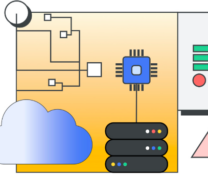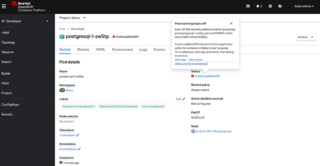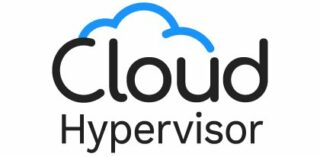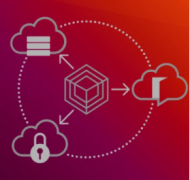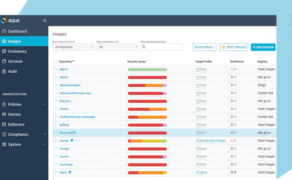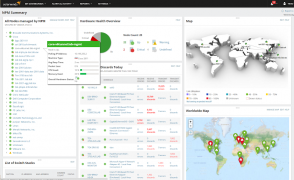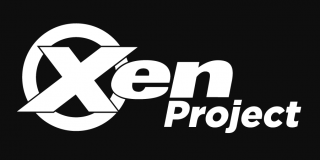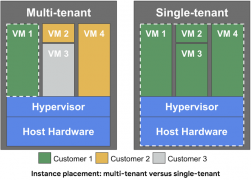Topic: vm
Red Hat unveils OpenShift Virtualization Engine, Connectivity Link offerings
Red Hat is announcing the release of two new offerings today: Red Hat OpenShift Virtualization Engine and Red Hat Connectivity Link. Red Hat OpenShift Virtualization Engine Red Hat OpenShift Virtualization Engine is a new version of OpenShift designed entirely for virtualization workloads. According to the company, this new version offers features to help deploy, manage, … continue reading
ITOps Times Open-Source Project of the Week: Cloud Foundry BOSH
Cloud Foundry BOSH is an open-source solution for provisioning and deploying software to virtual machines (VMs). It also includes capabilities for monitoring, failure recovery, and software updating. The tool was initially designed to deploy to Cloud Foundry PaaS, but it can also be deployed to almost any other software as well, the maintainers claim. It … continue reading
Google Cloud VMs can now be suspended
Google Cloud launched a new generally available feature called “VM suspend/resume,” which enables users to save money by temporarily suspending virtual machines (VMs) on Google Compute Engine when they are not in use, and then resuming them when needed. In the suspended state, users no longer have to pay for cores or RAM and instead … continue reading
Red Hat OpenShift 4.10 released
The new Red Hat OpenShift 4.10 release is based on Kubernetes 1.23 with the CRI-O 1.23 runtime and offers new enhancements and features for both developers and administrators. Among the 45 enhancements are the ability to change static network configurations after cluster deployment with enhanced networking metrics and debuggability. OpenShift also provides a way to … continue reading
ITOps Times Open-Source Project of the Week: Cloud Hypervisor Project
The Linux Foundation announced that it will host the Cloud Hypervisor project, which delivers a Virtual Machine Monitor (VMM) for modern Cloud workloads. The project is supported by Alibaba, ARM, ByteDance, Intel and Microsoft. The project is written in Rust and focuses on security features such as CPU, memory and device hot plug; support for … continue reading
Report: 85% of companies have yet to achieve full Kubernetes and cloud native adoption
Although companies have been adopting cloud native technologies at higher rates than ever before, 85% of companies have yet to fully cross the chasm to adoption when it comes to Kubernetes and cloud native. However, they are quickly moving in that direction. Nearly 78% of companies in Canonical’s Kubernetes and Cloud Native Operations Report had … continue reading
Google Cloud launches new virtual machine family Tau VMs
Google Cloud announced a new virtual machine family, Tau VMs, that delivers price-performance for scale-out workloads. The first instance type in the Tau VM family, T2D, is based on Gen AMD EPYC processors and it enables the VMs to scale out workloads of any public cloud provider available today. According to Google, Tau VMs offer … continue reading
Aqua Security launches Aqua Cloud Native Security Platform for containers and VMs running on Arm devices
Aqua Security launched a new container runtime security solution for Arm 64-bit environments that enables organizations to protect their high-density workloads on platforms such as AWS Graviton2 instances and more. “Our customers will be able to continue and accelerate their cloud native journey with Aqua’s support for Arm-based architectures. Through our commitment to supporting the … continue reading
SolarWinds Discovery aims to improve software delivery
IT management software provider SolarWinds announced the launch of SolarWinds Discovery, a SaaS-based solution designed to provide organizations with an efficient way to discover, map and improve their software delivery. The solution fully integrates with the SolarWinds Service Desk, allowing IT professionals to proactively address potential risks to IT and to stay compliant with software … continue reading
ITOps Times Open-Source Project of the Week: Xen Project Hypervisor
With their newest release, the team behind Xen Project Hypervisor 4.12 says that it is focusing on security and reducing code size in the open-source virtual machine monitoring platform. In a blog post, the team outlined the plans and their additional focus on renewed x86 architecture support, features for embedded and automotive, and more. “This … continue reading
Report: Enterprises are looking to replace VMs with containers
As enterprises are evaluating the benefits of containers, many of them are looking to reduce their reliance on commercial virtualization technologies. A newly released report found about 44 percent of respondents plan to move from VMs to containers. The report comes from Diamanti’s 2018 Container Adoption Benchmark, which looks at the current state of container … continue reading
Google Compute Engine gets sole-tenant nodes
Google has announced the beta release of sole-tenant nodes on Google Compute Engine. Sole-tenant nodes are physical Compute Engine servers designed to host VM instances for users’ specific projects. “Normally, VM instances run on physical hosts that may be shared by many customers. With sole-tenant nodes, you have the host all to yourself, Google’s product … continue reading



